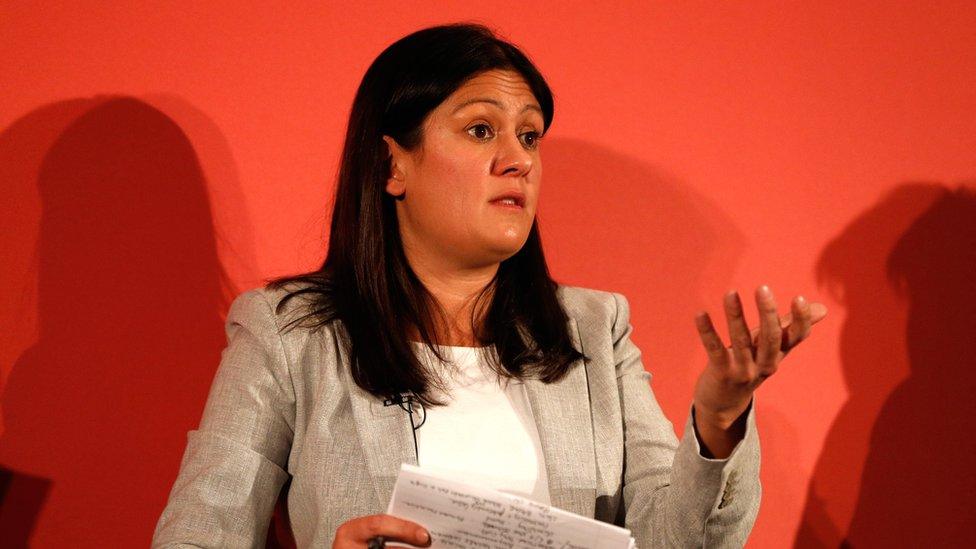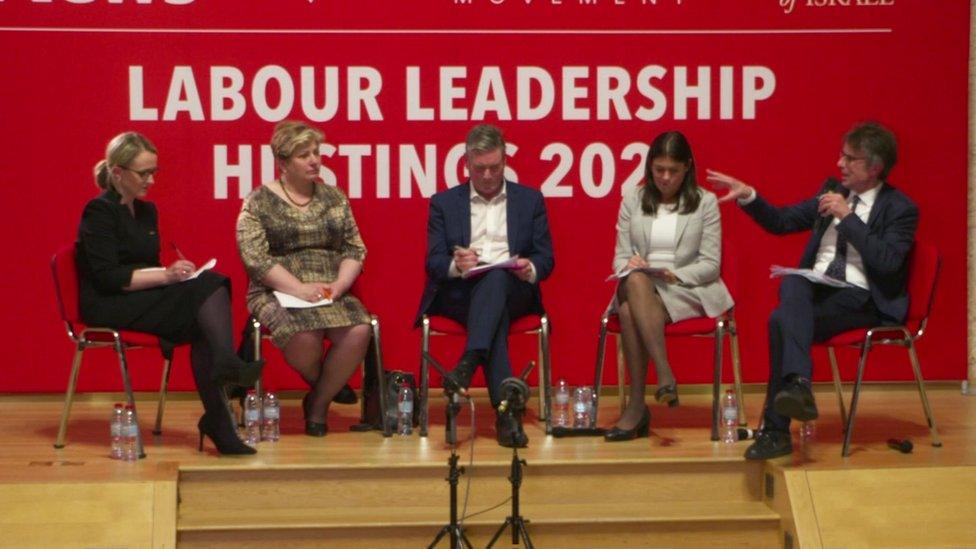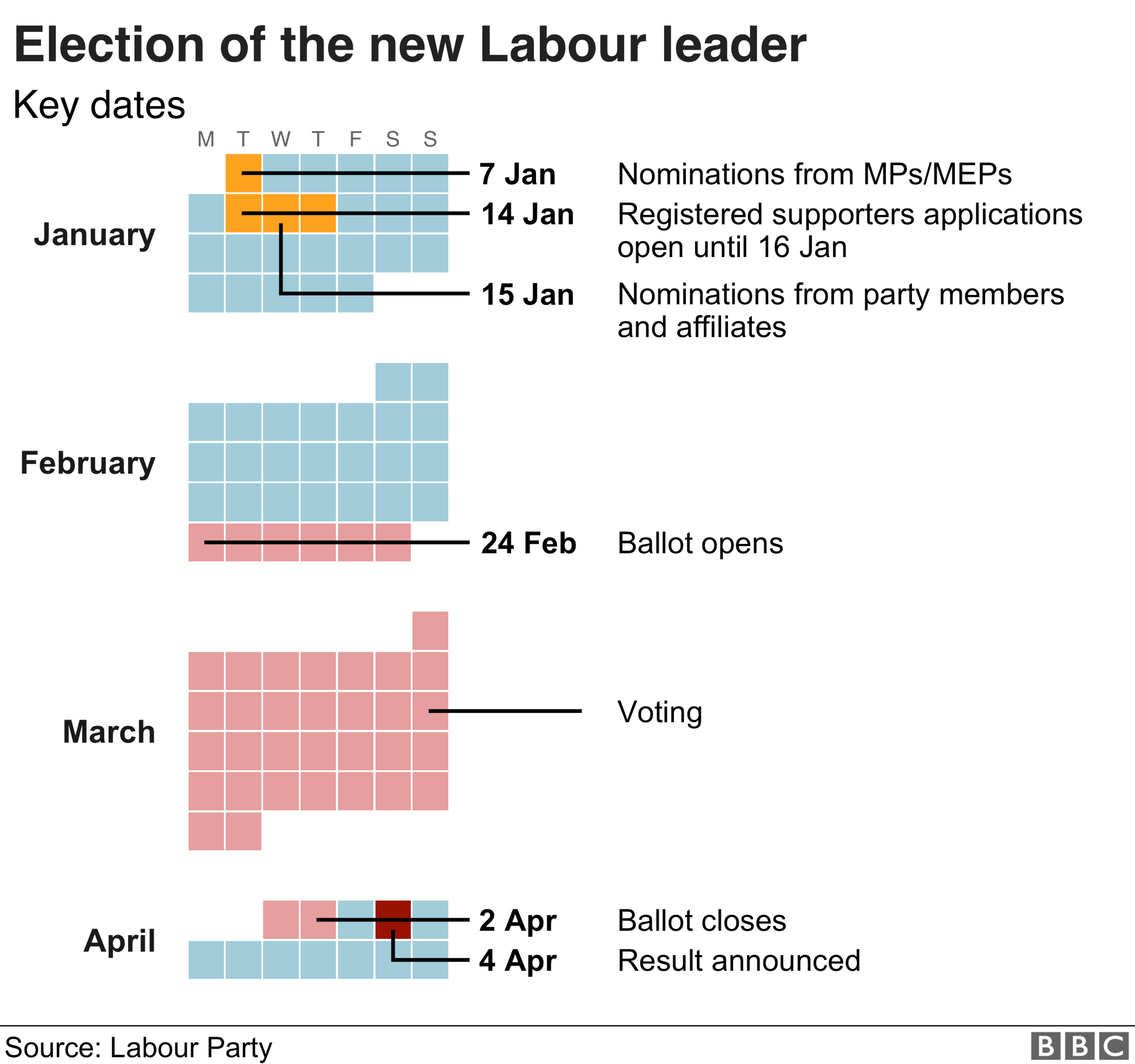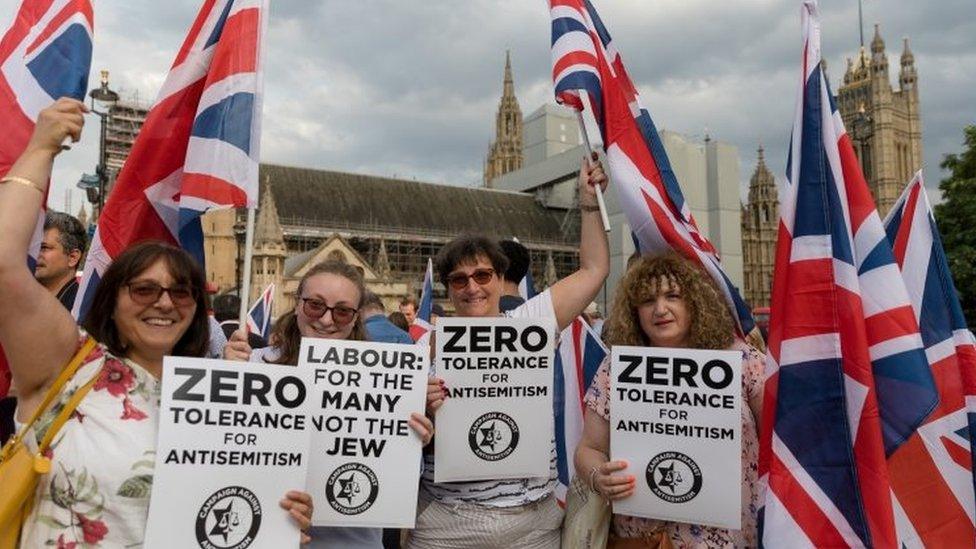Labour leadership: Nandy wins backing of leading Jewish group
- Published

Lisa Nandy has won the backing of the Jewish Labour Movement in her bid for the Labour leadership after a heated campaign hustings.
The endorsement comes after an event on Thursday at which all four candidates apologised to Jewish members over the party's handling of anti-Semitism.
The Wigan MP said she was "honoured" to get the affiliate groups's official nomination.
She received 51% of members' votes, with Sir Keir Starmer second on 45%.
Shadow foreign secretary Emily Thornberry and shadow business secretary Rebecca Long-Bailey received 1.9% and 1.4% of members' votes respectively.
Meanwhile, Ms Thornberry faces a battle to stay in the contest by securing her place on the members' ballot due to start next week.
Ahead of a midnight deadline on Friday, she still needs endorsements from a further three local party branches to qualify for the final stage.
Her three leadership rivals have already guaranteed their places on the ballot through nominations from unions and affiliate groups.
Sir Keir, who is regarded as the frontrunner in the contest, received a further boost to his campaign by winning the backing of the TSSA transport union on Friday.
The Jewish Labour Movement, which has been a party affiliate since 1920, is one of the largest of such groups with the power to nominate leadership candidates.
The group's members can vote for whichever candidate they want when the final, one-member-one vote stage of the contest get underway next week. The result will be announced on 4 April.
Many of the 20 socialist societies affiliated to Labour have balloted their members, with Sir Keir Starmer proving to be the most popular choice for leader.

The hustings event on Thursday was co-hosted by the Jewish Labour Movement.
During the 90-minute hustings at a synagogue in north London, all four candidates were pressed on their record on, and ideas to tackle, anti-Semitism within the party.
Labour's handling of the issue has dominated the tenure of outgoing leader Jeremy Corbyn, who is standing down following the party's defeat at December's election.
All candidates committed to implementing the recommendations of an ongoing inquiry into the issue from the Equality and Human Rights Commission (EHRC).
The watchdog launched the probe into whether the party had "unlawfully discriminated against, harassed or victimised people because they are Jewish" in May last year.
Shadow cabinet dispute
Asked whether she had spoken with shadow cabinet members about anti-Semitism, Ms Long-Bailey said she had, but added: "Was that enough? No it wasn't."
"Could I have done more? Yes."
During a BBC Newsnight debate on Wednesday, Ms Thornberry accused Ms Long-Bailey of failing to push for tougher action on the issue within the shadow cabinet.
Ms Thornberry said that along with Sir Keir, she had called for "regular reports" on cases within the party but Ms Long-Bailey had not done the same.
The shadow business secretary rejected this, responding: "I did, I think you'll find."
Emily Thornberry and Rebecca Long-Bailey clashed during Newsnight's Labour leadership hustings
At the Jewish Labour Movement hustings, Mrs Long-Bailey said the party needed to put in place a "legally independent" process for handling complaints, and offer training to members on spotting "insidious" anti-Jewish conspiracy theories.
Ms Thornberry said the party was now dealing with the issue of anti-Semitism by kicking out members, but asked: "Why on earth did we not do it two-and-a-half years ago?"
She said as leader she would also be pressing for the Conservative Party to adopt a plan based on the EHRC inquiry, adding that the governing party "have issues too".
Sir Keir said getting to grips with the issue of anti-Semitism would require "strong leadership," and would be a "day one issue as far as I'm concerned".
Lisa Nandy, who quit the shadow cabinet over Brexit in 2016, said anti-Semitism had become an "existential" issue for Labour and revealed she had previously considered her position within the party over the issue.


Mrs Long-Bailey took a swipe at her leadership rivals on Friday during a speech to set out a "path to power" for Labour following four election defeats.
Speaking in Salford, she said both Ms Thornberry and Ms Nandy had failed to set out blueprints for how Labour can win the next election.
She added that although Sir Keir was "rigorous and detailed," the party's recent election defeat was "partly to do with Brexit, and partly because too many voters thought we looked like just another bunch of politicians in Westminster".
- Published18 November 2020
